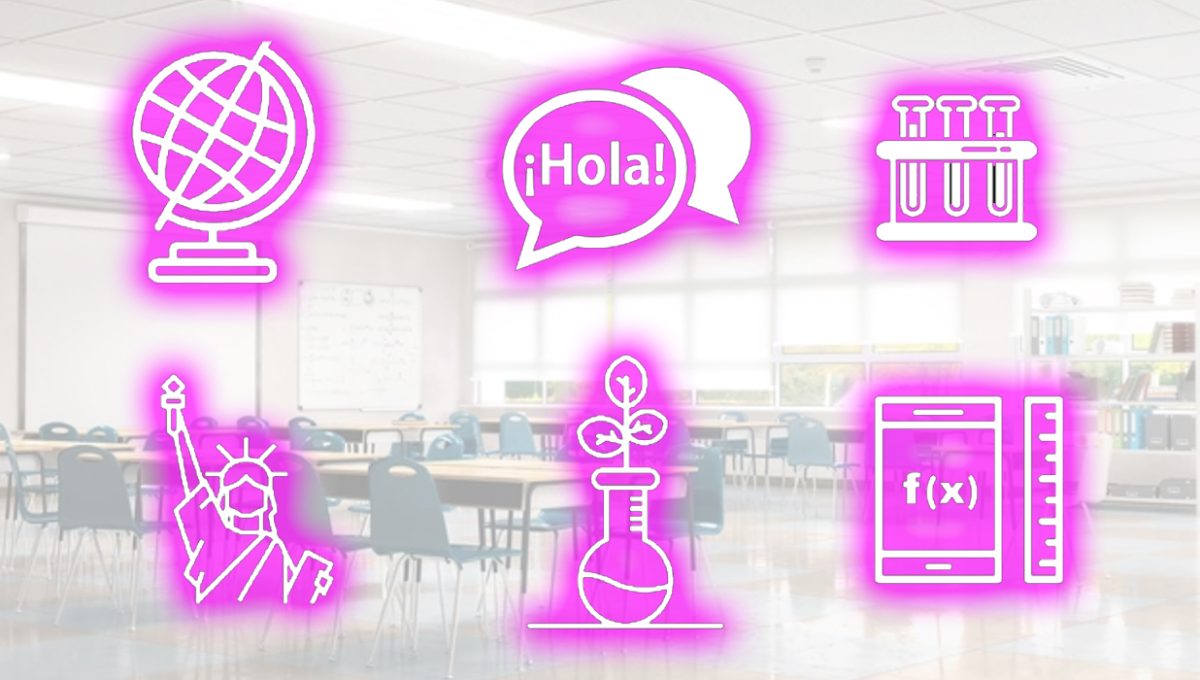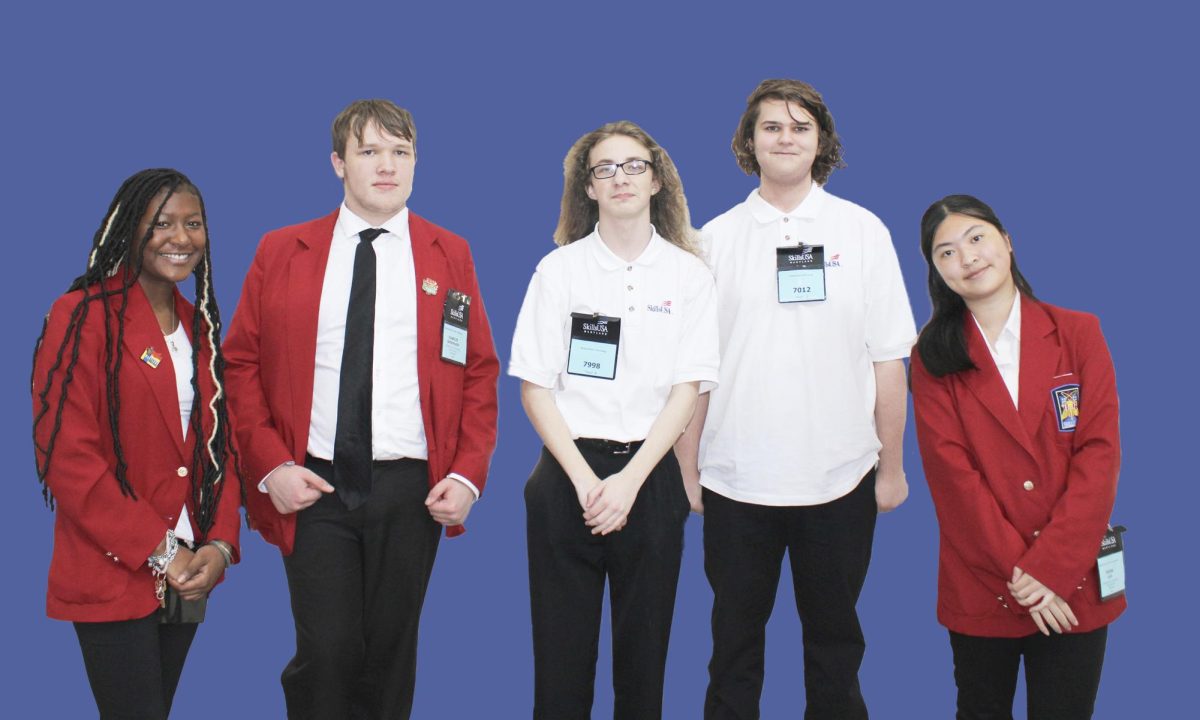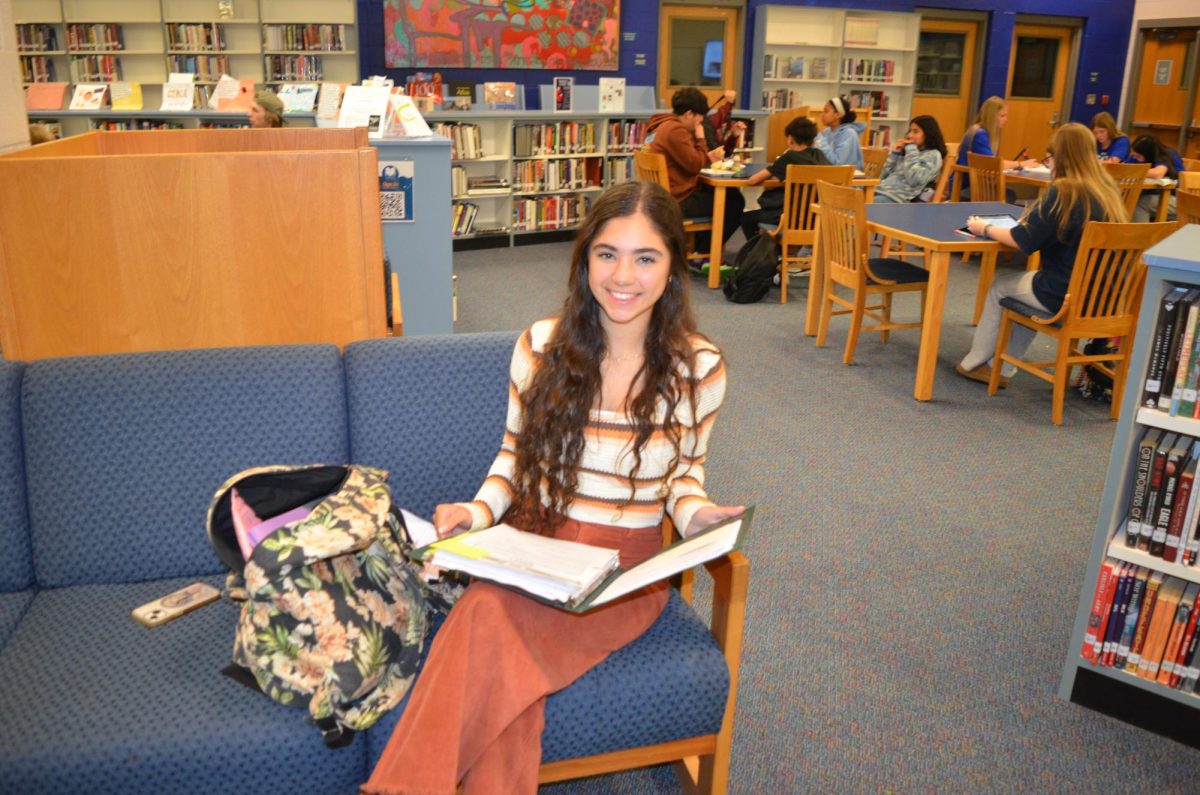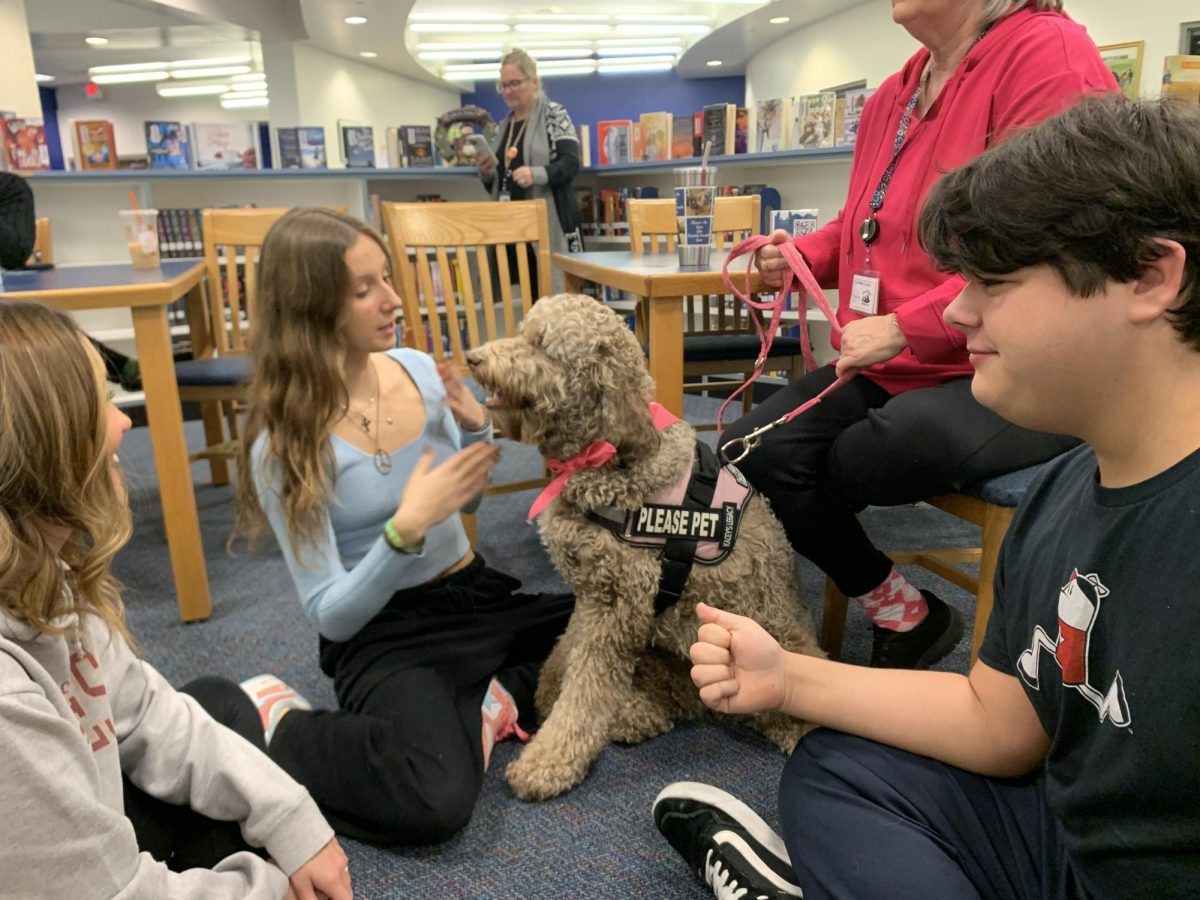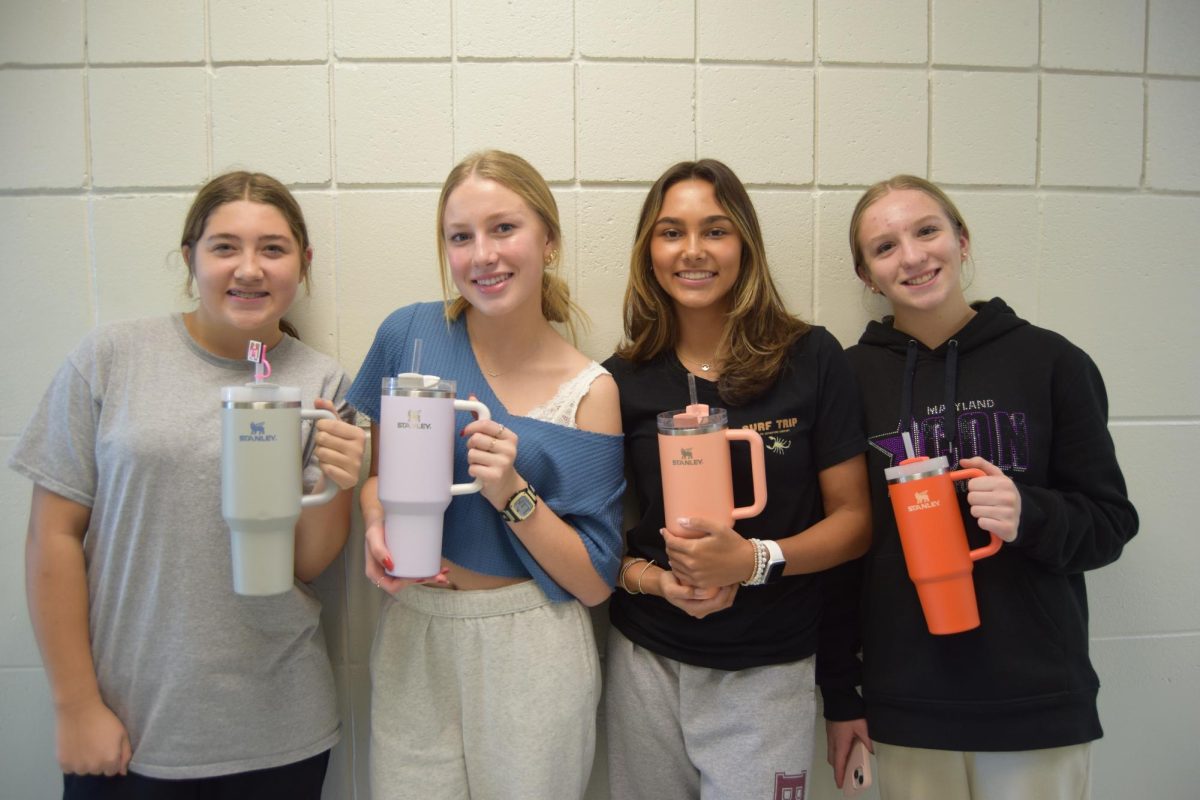Advanced Placement (AP) classe are higher up and dig deeper than semester classes. For new people taking the class, we interviewed former and current AP students for advice, tips, and how they study for their final tests.
AP CHEMISTRY
Emmie Weber, a junior, uses the big, lengthy textbook for review as well as watching YouTube videos. Her homework and labs help guide her for potential test questions. Even though she doesn’t hang out after school Ms. Patrick is able to stay after school for more help.
If Emmie does need help, she does ask the teacher’s help in class. She does constant practice and reviews her notes to prepare her for the tests because they may be similar to what she has already done. This class does take hours of work, she tries to balance her AP work with her extracurricular activities
AP ENVIRONMENTAL SCIENCE
Shohag Sen, a junior currently enrolled in this class, says this class is more of a struggle, but she learned many study habits that helped her succeed in this class. She takes notes very well on any concepts. These concepts aren’t hard, it is the application to them that is way harder.
Having previous knowledge in Biology and Chemistry helps her understand what she is learning. She studies by learning current topics. The vocabulary that she learns is very crucial to help her study and is used in her videos that are very helpful.
The labs that she does in class are very important, so she knows to pay attention to them. She wants people to rely not just on the resources provided, because it helps when you have other resources.
This AP is overwhelming, but don’t get overwhelmed if you review your topics and revisit them before moving on. This class is fun if you like science, but you need to focus and put in effort in this class or else it will lead you you to a score that you will not like.
AP WORLD HISTORY
Junior Mara Minkey makes sure to review the reading guides that she has been given for the unit as well as the notes from the lectures. For studying, she watches review videos on YouTube on each topic of the unit as well as using the AMSCO book to do practice questions.
After completing the practice questions, she looks in the textbook to use what she has gotten wrong and what she has gotten right so she knows what she did wrong to help better herself when she sees similar questions on the test.
Taking notes during the lectures are very critical to bettering your education because you are being more involved in your learning and help you review what could potentially be on the test.
Asking questions to Ms. Hathaway is very important as well because she will always answer your questions even if you need it to be restated in a different way to better your education. Like every single class you need to keep up with your work or it will get to you and stress you out even more than you already are.
AP COMPUTER SCIENCE PRINCIPLES
Mara Minkey makes sure to review previous projects on coding so she can improve and better herself on future tests. Reviewing notes and assignments from previous weeks helps her have an idea of what could be on the test and improve on topics that she could be not strong in.
Even though coding may seem hard, it is easy if you actually try and participate in your learning. Assignments that Dr. Hill gives are very important and must be prioritized. This class helps with an introduction to computer science and information technology. This class will change the perspective one might feel about computers, the internet, and much more.
AP PRE-CALCULUS
Emmie studies with AP classroom videos to help her review as well as the practice problems on that resource. She does a lot of constant practice to try to be an expert on the material that she is working with.
She uses Flipped Math that also gives her a review videos, practice problems, and an answer key when she is done. She has quizzes, tests, warm-ups, and more that are thoroughly discussed by Mrs. Fenzel-Mergott. The teacher also stays after school if people need help, even though Emmie does not stay it is available.
AP U.S. HISTORY
Junior Emmie Weber passed AP United States History and scored a 4 on the test. She discovered study tips for students to develop and perhaps get the same score she did or higher. She took a lot of notes, when I say a lot of notes: I mean she took 6-9 pages of notes during class from the lectures, book, and research about the topic.
She would then highlight the most important information that she collected from that day. Then, she would study and memorize the highlighted information to be an expert on the topic.
She suggests looking through the textbook and writing down the important dates, people, events, pros and cons of these events, as well as the cause and effect, for it will be used later. At the end of the week, she would start over from the very beginning of her notes and review from each chapter.
It’s very important to always connect things because they will be very important to DBQs and LEQs, for the AP test will have them. Make sure to split up the chapter work.
AP CALCULUS
Angelina Li is a junior and is enrolled in the class. She says she has had APs before but hasn’t taken a math AP until this year. Since math is very different from history APs and English APs, the study habits may be harder or easier for people.
She looks through her notes to see if she understands the unit that she is on and if she does not, she uses the resource Flipped Math that digs deeper on the topic and unit, so she understands it better. She also watches a Youtube creator known as Organic Chemistry Tutor who posts lots of math videos and concepts so she can better her understanding and do well on her tests.
Angelina makes sure to ask the teacher for help if she doesn’t understand concepts and help on homework. This class requires a lot of critical thinking and problem-solving skills.
Ms. Bryan specifically always goes over past AP Calc problems and free responses to practice. She also gives a whole month dedicated to review for the AP test. It is essential to pay attention to the review that any AP Calculus teacher gives you.
AP SPANISH
Jocelyn Navarrete-Garzon is a junior and is currently enrolled in this class. She studies the vocabulary by using Quizlet or making flashcards to help her familiarize herself with the words.
It is hard to predict what is on the unit tests because there are random passages and audios that are chosen. Jocelyn does listen to shows or movies in Spanish so she can improve her listening skills so she can be somewhat prepared for the tests.
There are already movies that are assigned for homework over the weekend and helps even more with listening comprehension as well. In the movies there are different accents of people speaking Spanish, so it helps with listening comprehension and understanding what they are saying.
For people that are planning to take this class and are currently in this class make sure to keep reviewing your verb tenses most importantly the subjunctive tense.
To use more advanced language will help you score a higher score on the AP test. Make sure to practice both your writing and speaking because that is heavily focused on this AP.
When you thought you could slack in your other class, you can’t in this AP. You will be writing essays, email responses, as well as doing simulate conversations, and more.
In this class you get to play Quizlet, Kahoots, read books and stories that captivate your interest, as well as playing games sometimes. There is not much homework assigned that Señora Sawyer gives so you can still have a balanced life outside of school.
If you need more practice you can practice after school either with Señora Sawyer or practice on your own. Jocelyn as well as others love Señora Sawyer, for she explains topics very well and is always so helpful. This class may seem like a lot, but it is all due to how much effort you put into this class.
These are challenging, but if you are practicing you will do well. Jocelyn says, “Lastly, do not panic! AP Spanish is an amazing class, and it is VERY FUN!”


